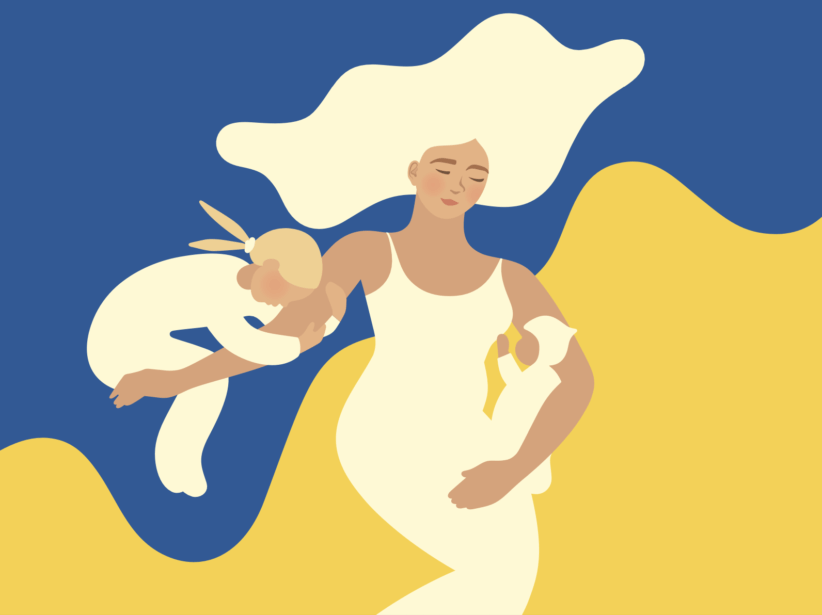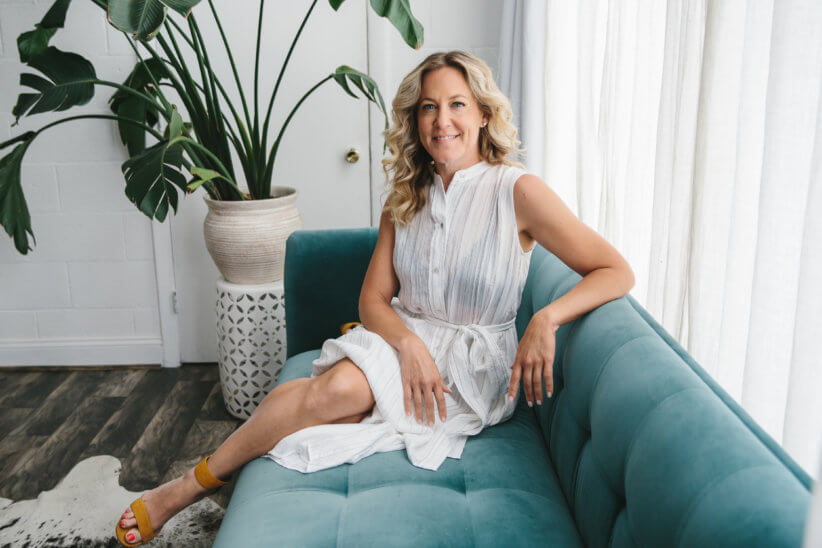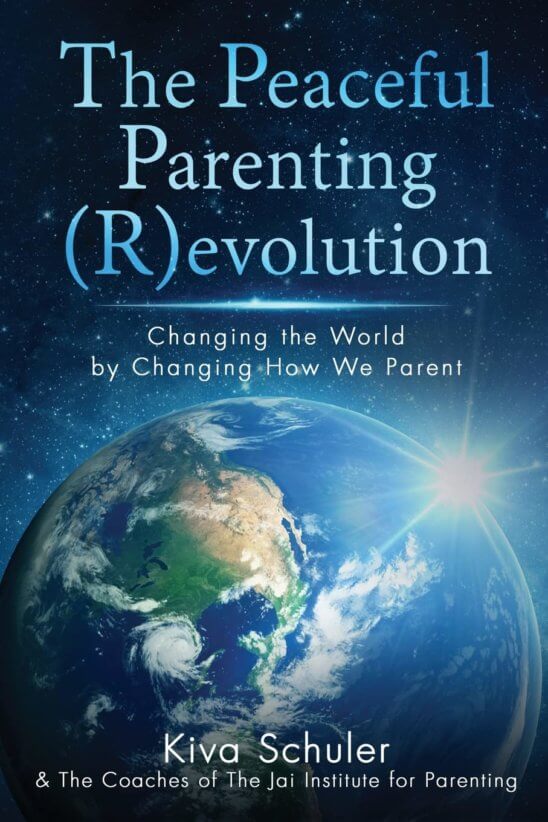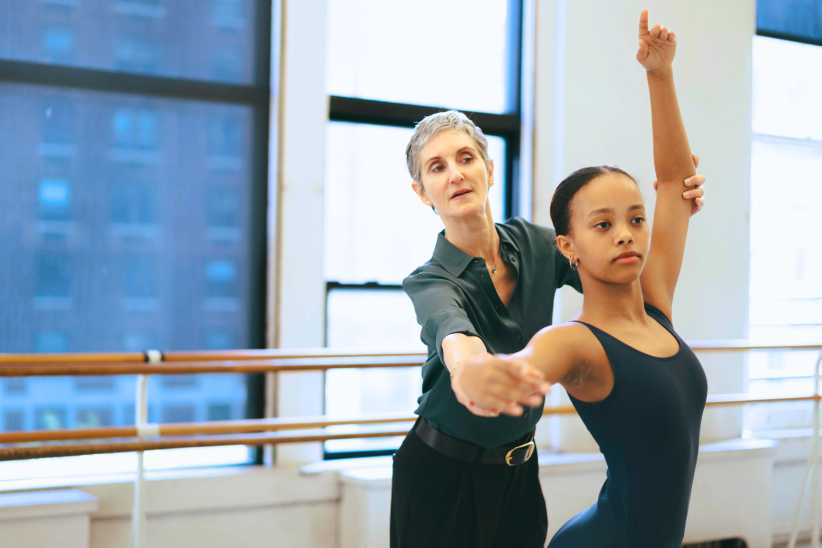
Peaceful Parenting : What is it? An expert shares on this parenting method
We all know parenting can be challenging which is why many of us parents love to share and commiserate about what is and is not working in our parenting journeys. Maybe you chatted or heard about the Peaceful Parenting Revolution, and if the words ‘parenting’ and ‘revolution’ pique your interest- you’re not alone. But what exactly is it? Is it doing yoga with the kids or burning some sage?
We connected with parenting expert and author of the new book The Peaceful Parenting (R)evolution, Kiva Schuler, the Founder & CEO of The Jai Institute for Parenting, where Kiva trains parenting coaches to help parents parent with compassion, balance and communication.
Psst…Forget the Resolutions: Life Coach Leah Wiseman Fink Shares Year-Round Tips

What is the Peaceful Parent Revolution?
In today’s chaotic world, there is a need for a radically different approach to parenting. One that helps parents and children create a life-long bond by accessing emotional intelligence, conscious communication, and an understanding of our children as evolving human beings. The Peaceful Parenting (R)evolution redefines the way parents support their children as they face the complex challenges of this world.
The real change that Peaceful Parenting advocateS is that parents shift their role from disciplinarian to being our child’s mentor and guide. Traditional parenting strategies like punishments, arbitrary consequences (meaning the consequence isn’t directly related to the mistake our child made) and “tough love” aren’t necessary to teach children values, boundaries, rules and morals.
Today, more than ever, our children need us to be their safe-harbor, knowing that they can trust us to support them through the ups and downs of life.
When we give children what they need, they will give us what we need. The shift to Peaceful Parenting creates a family system where every person in the family’s feelings and needs matter, and families thrive.
In what way do parents (unintentionally) bring their generational trauma into their parenting?
One of the biggest myths of parenting is that it “comes naturally.” But what actually comes naturally is affected by the way we were parented. Especially in moments of high-stress, overwhelm, exhaustion or conflict.
Our emotional reactivity is the outcome of the culture we experienced in the home we grew up in. Whether you avoid conflict at all costs or you’re always ready for a fight, you likely learned this from your early environment.
If you grew up in a family of yellers, you yell. If you grew up in a family that simmered in silence, you simmer. Unhealthy conflict strategies create disconnection, resentment and have an impact on our nervous system, keeping us in a constant state of fight or flight.
Unchecked, we pass these unhealthy communication strategies down, generation after generation, even if we want to act differently. The good news is that we all have access to something called neuroplasticity. This means that with intention and practice we can learn new ways of relating to our children, and break any generational cycles of harm that impacted us as children.
Is it possible to transform your parenting style with older kids?
One of the things that we hear from parents all of the time is “I wish I had this information when my kids were younger!!” But truly, it’s never too late to repair the relationship with our children, even if they are teens or adults. It requires three things:
1) Vulnerability
The first step in regaining trust and connection is a willingness to speak to the reality and truth of our awareness of the past. This takes tremendous courage. But for your child to hear – from you – that you recognize the mistakes you’ve made and are open to hearing their experience lays the foundation for a new relationship to emerge.
2) A willingness to listen without getting defensive
Defensiveness is a natural response to shame. But it serves its purpose, and creates a wall between people. It’s helpful to think of yourself as an interviewer in these relationship-rebuilding conversations. Ask a lot of questions! Things like:
“What was it like for you?”
“How did you feel when ____ happened?”
“Tell me more.”
“What do you wish things were like?”
You’ll probably notice a tightening in your chest or heat rising in your face. Just breathe and resist the urge to negate, explain, justify or give context. Just listen.
Let their words sink in. The simple act of being willing to just listen is a gift your child will relish. It’s truly what they’ve been longing for the whole time. Put yourself in their shoes. How would you feel had your parents been willing to do this for you?
3) Patience
When our children are older they’ve stockpiled a lot of evidence about who we are and how we treated them. Repairing relationships takes time. It may take several of these empowered conversations over the course of months or even years for the relationship to heal.
In my book I share a story about a very difficult experience I had with my own daughter when she was 14. She was justifiably furious with me. But I was trapped in believing that I was doing the right thing because of my own fears and beliefs. Once I realized what I had done, and used the framework above, it took almost a year for her to come back to me with an open heart. I am so grateful to have had the support of one of our parenting coaches at The Jai Institute for Parenting, because I now have an incredible connection with my daughter.
This experience strengthened our relationship. We learned to trust, hear and forgive each other. This is the foundation of the intimacy that I believe all parents truly want with their children.
What tools can new parents exercise when they lack a foundation/understanding of peaceful parenting?
One of the biggest misconceptions of Peaceful Parenting is that it is permissive parenting. Effective peaceful parents set boundaries, make rules and have expectations of their children’s behavior.
The difference is that we don’t use any tools of manipulation, shame, punishment or threats to instill these valuable life lessons in our children. The idea that we have to cause our children pain and suffering to teach them to be good people defies logic. Power-over strategies perpetuate so much of the suffering we see in the world.
We don’t need to look at children to see that they don’t work. We can simply look at adults: how we judge other people… or become people-pleasers because we learned this was how to get our needs met when we were kids… or become demanding because now we’re the grownups and we finally get to have the power.
So the first tool would be the recognition that the power-over strategies of traditional parenting cause unnecessary pain. Next, I would recommend simply getting curious about why we believe that we have to treat our children this way for them to learn. Is it possible that they could learn the same things without compromising the trust and connection in the relationship we have with them?
We can absolutely parent peacefully without compromising our role as parents.
5. What principles do you use in your parenting?
As the founder of a Peaceful Parenting institute, I feel extraordinarily lucky to have had these tools as I’ve raised my children. They are 16 & 18 now, and I get to reap the rewards of doing the work of becoming a better person in the name of raising good people. I’d say these are the core three principles that have guided us through:
1) Trust
I trust them to be able to create solutions for their challenges. The way children learn to make good decisions is to make decisions (and sometimes bad ones!). So I don’t rescue them from their challenges. I’ve learned to talk less and listen more. And to step back to make room for their confidence to grow.
2) Honesty
Children can handle anything when we tell them the truth. They are so incredibly smart and wise, when given the chance to be. Our family has experienced our share of adversity, from divorce and financial struggles, to illness and death. I’ve learned that being direct and honest with my kids about what is really going on allows them to feel safe and respected.
2) Fun
Parenting is no easy feat. So it’s really important to remember to make as much time and energy for fun as possible. Whether it’s impromptu dance parties in the kitchen or one of my favorite family activities: speed cleaning the kitchen after dinner (can we do it in under six minutes?!!) These moments strengthen the relationship I have with my kids and fill our cups for the more challenging situations that arise.

The Peaceful Parenting (R)evolution: Changing the World by Changing How We Parent by Kiva Schuler is available now! Get your copy online at Amazon and Barnes & Noble.























